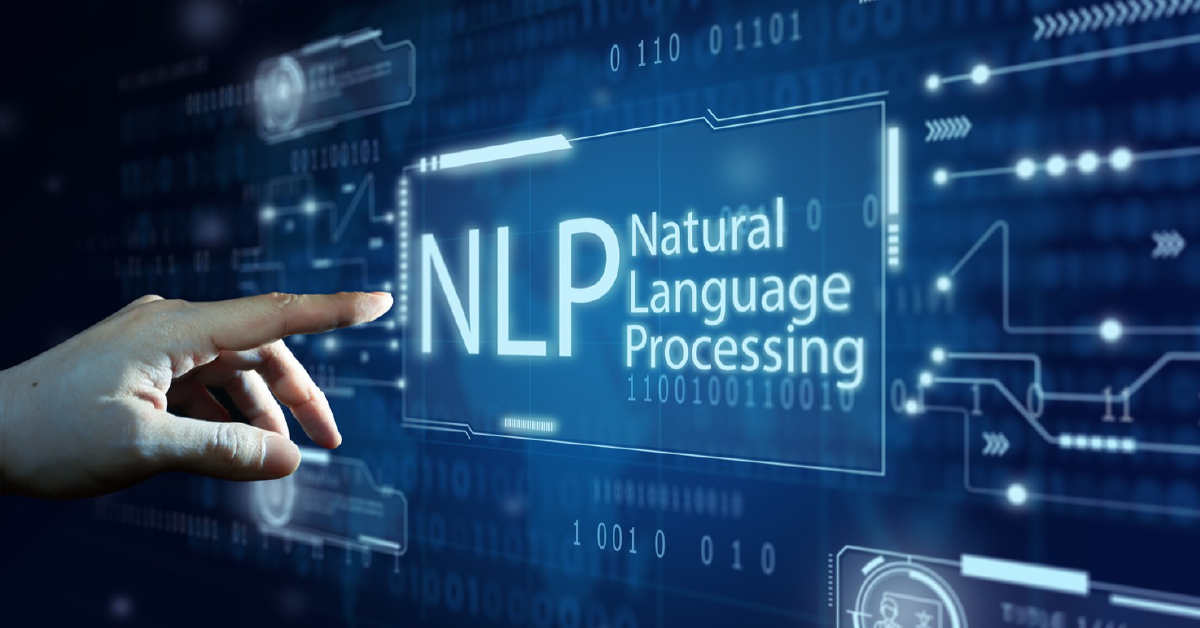AI in E-Commerce: From Personalized Shopping to Supply Chain Optimization

6 min read
E-commerce has grown exponentially, providing consumers with unparalleled convenience and a vast array of products at their fingertips. To thrive in this competitive market, e-commerce businesses are depending more and more on artificial intelligence (AI) to enhance customer experience and streamline internal operations. AI is having a significant impact on the e-commerce industry, from customized purchase recommendations to supply chain optimization. In this blog post, we will examine how artificial intelligence (AI) is transforming the e-commerce sector.
What is the Role of AI in Personalizing E-Commerce Experiences?
The way businesses operate has been drastically altered by artificial intelligence (AI), and the retail sector is no exception. E-commerce is being revolutionized by artificial intelligence (AI), which offers a powerful tool for customizing customer experiences. Therefore, online shopping is becoming more and more popular; businesses are using AI to give themselves a competitive edge by providing better customer service, customized advertising, and personalized recommendations.
One of the key components in customizing e-commerce experiences is the use of AI-powered recommendations. AI is able to analyze vast amounts of data, including past purchases, browsing patterns, and client preferences, and use sophisticated algorithms and machine learning to generate highly personalized and relevant product recommendations. Reducing the time spent searching for goods enhances the customer’s buying experience and increases customer loyalty. Businesses that successfully apply AI to customize the consumer experience might see revenue growth of 6–10%, according to a McKinsey study.
Personalized advertising campaigns are another application of AI, in addition to recommendations. Artificial intelligence can use customer interest and demographic data to target specific customers with customized advertisements, increasing the likelihood of conversion. Businesses can save money on advertising by offering customers deals that are both relevant and appealing, and this improves the overall shopping experience.
Improved customer service is another way artificial intelligence is revolutionizing e-commerce. Chatbots powered by automation and artificial intelligence (AI) offers immediate, customized customer support. Inquiries from customers regarding returns, product details, and order status are all addressed by these virtual assistants, freeing up real customer support representatives to work on more complex issues. NLP and sentiment analysis are additional tools that chatbots can use to understand and respond to client requests casually.
AI is completely changing how e-commerce businesses customize the client experience. Retailers may optimize their marketing efforts, enhance consumer loyalty, and offer individualized shopping experiences by embracing AI for industries and employing custom application development services.
How Does the Improvement of Client Loyalty in E-commerce Occur Through AI-Powered Recommendations?
Online merchants may now provide highly tailored and relevant product recommendations with the use of artificial intelligence (AI), which boosts customer pleasure and loyalty. AI uses complex algorithms and machine learning to analyze vast amounts of data, including browsing patterns, past purchases, and consumer preferences, to generate recommendations that are unique to each user. Customers benefit from a more individualized shopping experience in addition to time savings as a result of the decreased effort required to search for products.
Retailers can use custom application development services and AI for industries to create algorithms that are precisely tailored to understand each customer’s unique preferences and needs. This degree of customization raises the possibility of recurring business and enduring consumer loyalty in addition to improving the customer’s buying experience.
Additionally, clients may learn about new products through AI-powered suggestions that they might not have otherwise learned about. By analyzing customer data, artificial intelligence (AI) algorithms can identify related products or suggest complementary items. It can increase client satisfaction and sales.
Is AI the New Game-Changer in E-commerce for Supply Chain Optimization?
It is impossible to ignore artificial intelligence’s significance in supply chain optimization when we examine the technology’s revolutionary potential in the e-commerce industry. AI for industries and custom application development services are helping e-commerce businesses revolutionize their supply chain processes and gain a significant competitive edge.
The process of supply chain management has always been difficult and labour-intensive, requiring a lot of manual work and human decisions. But the world is shifting quickly as automation and artificial intelligence become more prevalent. AI-driven algorithms can analyze large volumes of data, including supplier performance, market trends, inventory levels, demand forecasts, and supplier performance, to support decision-making and supply chain optimization.
Demand forecasting is one of the main areas where AI is useful. AI algorithms can accurately forecast future demand by evaluating past data and accounting for a variety of factors, including seasonality, promotions, and outside events. It leads to cost savings and increased customer satisfaction for merchants by allowing them to optimize inventory levels, minimize stockouts, and prevent surplus inventory.
AI is also very important for supplier management. Artificial intelligence (AI) systems monitor supplier performance. Including quality, delivery times, and cost, and can identify underperforming suppliers and suggest alternatives. It increases the efficiency of the supply chain and gives vendors the power to reduce for better terms and lower prices.
Furthermore, through the analysis of variables like carrier selection, route optimization, and real-time tracking, AI can enhance logistics and transportation. AI algorithms have the power to save shipping costs, expedite delivery, and enhance customer happiness by determining the most effective routes and carriers.
AI can also provide real-time traceability and visibility throughout the supply chain. Retailers may get real-time insights into inventory levels, order status, and delivery updates by utilizing AI algorithms that integrate data from several sources, including suppliers, warehouses, and transportation providers. It increases operational effectiveness while enabling proactive management and prompt handling of any delays or disturbances.
In What Ways can Ethical Issues Related to AI in E-commerce be Effectively Managed?
Although there are many advantages to using AI and automation in e-commerce, there are also ethical issues that need to be resolved. As AI advances, businesses must address these concerns and ensure that their AI systems are used morally.
Privacy is a primary ethical issue concerning artificial intelligence in e-commerce. The collection and analysis of vast amounts of data by AI in order to provide personalized experiences may compromise people’s right to privacy. Companies should prioritize data security and transparency by telling customers about their data collection and use practices. Algorithmic bias is an additional ethical consideration. The historical data used to train AI algorithms may have biases ingrained in it. Biased decisions can involve discrimination based on a person’s gender, race, or other protected characteristics. To find and address any biases, companies must audit and assess their AI systems on a regular basis. Businesses may assurance impartial and equitable results by using strong bias detection techniques and broadening the data utilized to train AI algorithms.
The influence of automation on the workforce raises further ethical questions. AI can replace human work while simultaneously increasing efficiency by automating repetitive operations. Retraining and upskilling staff members to fill new positions. It will make use of AI technology is a proactive way for businesses to handle this issue. Businesses can lessen the detrimental effects of automation on their workforce. By making investments in staff development and promoting a culture of continuous learning.
Businesses should take responsibility for the decisions made by their AI systems and be open about how these systems operate. Establishing trust with customers and stakeholders through the provision of explanations and justifications for AI-driven decisions is crucial.
Chatbots and AI-Powered Customer Service in E-commerce
Chatbots and AI-driven customer service are transforming e-commerce by giving customers quick, personalized support. Advances in artificial intelligence and natural language processing have made it possible for chatbots to converse and respond to a range of client queries. They increase output and response times by automating repetitive jobs. Freeing up human customer support representatives to concentrate on more difficult problems.
A primary benefit is their round-the-clock accessibility, guaranteeing clients receive prompt support whenever needed. Chatbots that use machine learning are constantly learning and developing, enhancing their responses and recognizing user preferences with each interaction. By making tailored product recommendations and helping with upselling and cross-selling, they significantly contribute to increasing sales.
Chatbots and AI-driven customer support improve e-commerce companies’ sales, efficiency, and customer experience. We can anticipate even more creative applications of AI technology as it develops. Which will further optimize operations and delight customers.
Conclusion
Let’s sum up by saying that artificial intelligence (AI) is a powerful force for change that is radically changing. The e-commerce landscape, not just a trendy term. The engine driving the growth of e-commerce is artificial intelligence (AI). Which powers everything from supply chain optimization and security enhancement to personalized shopping experiences for customers! The revolutionization of search and discovery.
We may expect even more fascinating innovations in the future. Future developments that promise to transform online purchasing further include conversational commerce, augmented reality shopping, tailored pricing, and environmental initiatives. Certainly, the businesses that adopt AI and capitalize on its disruptive potential will be leading this ongoing revolution in e-commerce.
Artificial intelligence (AI) technology and e-commerce are driving us toward a future where shopping is more convenient, efficient, and personalized than ever in this cutthroat and fast-paced industry. The use of AI in e-commerce has countless possibilities, and the trip has only just begun. Being a member of this dynamic sector at this time is fantastic.
Published: November 22nd, 2023





